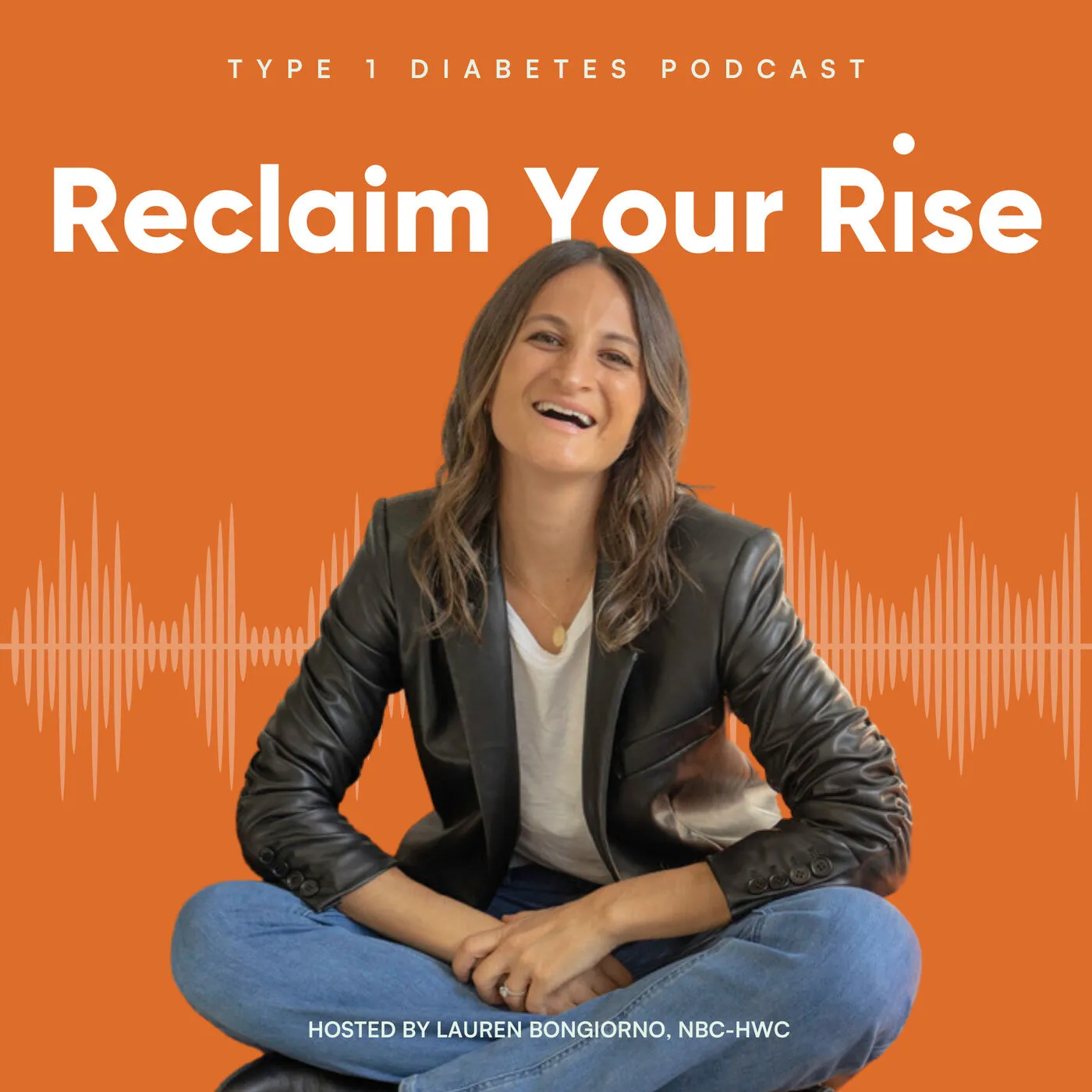Do you struggle to prioritize your diabetes? Are you a parent or caregiver or work in a people-centered career?
Nurse and T1D Bridget Rueter, a recent guest on the Reclaim Your Rise podcast can relate. Bridget shared that it wasn’t easy at first to break out of the mindset that her own health came second to that of her patients, but with time, practice, and support she was able to change her thinking and make small adjustments in her life that made a big difference in her diabetes.
From a place of empowered awareness, Bridget was able to lower her A1C from a 7.2 to under a 6.0 with 90+% time in range. But the biggest improvement was in her confidence, energy, and ability to show up full-force in her work, relationships, and life.
Here are 3 of Bridget’s takeaways and how you can use them on your own journey.
1. Fill the education gaps that are creating daily disruption.
If you’re struggling to prioritize your diabetes, it could be partially because it’s easer to avoid what’s challenging or what’s not working than it is to face it straight on.
Here’s the thing: Education that sets us up for long term success with type one diabetes isn’t guaranteed.
Bridget says, “I think it's very interesting because I do have a medical background and you would think that that would be something that, if not reinforced in my own years of [managing my] diabetes, that it would be reinforced in my education. But I can tell you, that that would be a no. It's just not something that's taught unless maybe you are a specialist in endocrinology.”
Learning about hormones, insulin timing, and active insulin were game changers for Bridget.
With the information she had been missing for years and the guided processes inside the coaching program, Bridget was able to re-examine her insulin to carb ratios and level out her blood sugars significantly. Her starting IC ratio was 1:7 and she ended at 1:12, with far fewer low blood sugars. Without deciding to take the time, commit to the coaching program and focus on this with an open mind, Bridget would have continued to struggle with frustrating low blood sugars.
First step to figure out where you need educational support is identifying your patterns. What’s really going on with your blood sugars? Then start to get curious about why.
2. Acknowledge that diabetes takes a toll and speaking up about it is not a weakness.
This is often the last place any of us want to go. On the surface, diabetes can seem like it’s just about the numbers and the calculations. But those of us living with it know that it really is so much more than that. And yet, taking the time to slow down and process our feelings about it often doesn’t come first on our agenda, and it’s rarely discussed at our endo appointments.
Bridget remembers her childhood with T1D: “As I grew up, I didn't think anyone would want to know about the burden… It just became associated with a level of weakness that I started to internalize. I was like, ‘I'm not gonna let this thing stop me. I'm not gonna let this take over my life.’ And by not giving it any space, I feel like it took more and more of the space inside of me and then outwardly, I was not really acknowledging that it was taking such a toll.”
Sound familiar?
Take some time today to reflect back on your life with T1D, whether it’s been 20 years or 2 months. What have you gone through? How do you really feel about your diagnosis. Journaling in this could be a powerful exercise and you might be surprised to see what comes out.
3. Recognize that we can only show up for others as well as we show up for ourselves and our diabetes.
Self-care has become such a mainstream term, but for people with diabetes, it’s more than just taking time to recharge. It’s also about including our diabetes management in that bucket of self-care. We can only go so far when we don’t prioritize it. We have so much more to give when we first give our diabetes the time and attention it needs.
Bridget says that a big moment for her was recognizing “what I was doing would be better for myself and would be better for the authentic care that I can provide. I'm so much more in the zone or focused when I'm working now than I used to be. And that was really motivating too. Like the more I gave diabetes, the more energy I had, and now I'm able to move with a lot more clarity in the work that I do.”
What would be possible for you if diabetes didn’t interrupt your work or your sleep? How would you be able to show up in your relationships and your career if diabetes wasn’t a constant distraction?
If you’re looking for a supportive, structured process of getting you to this place of confidence with your diabetes, apply to the Decide and Conquer Bootcamp, our signature group coaching program for women.





.jpg)